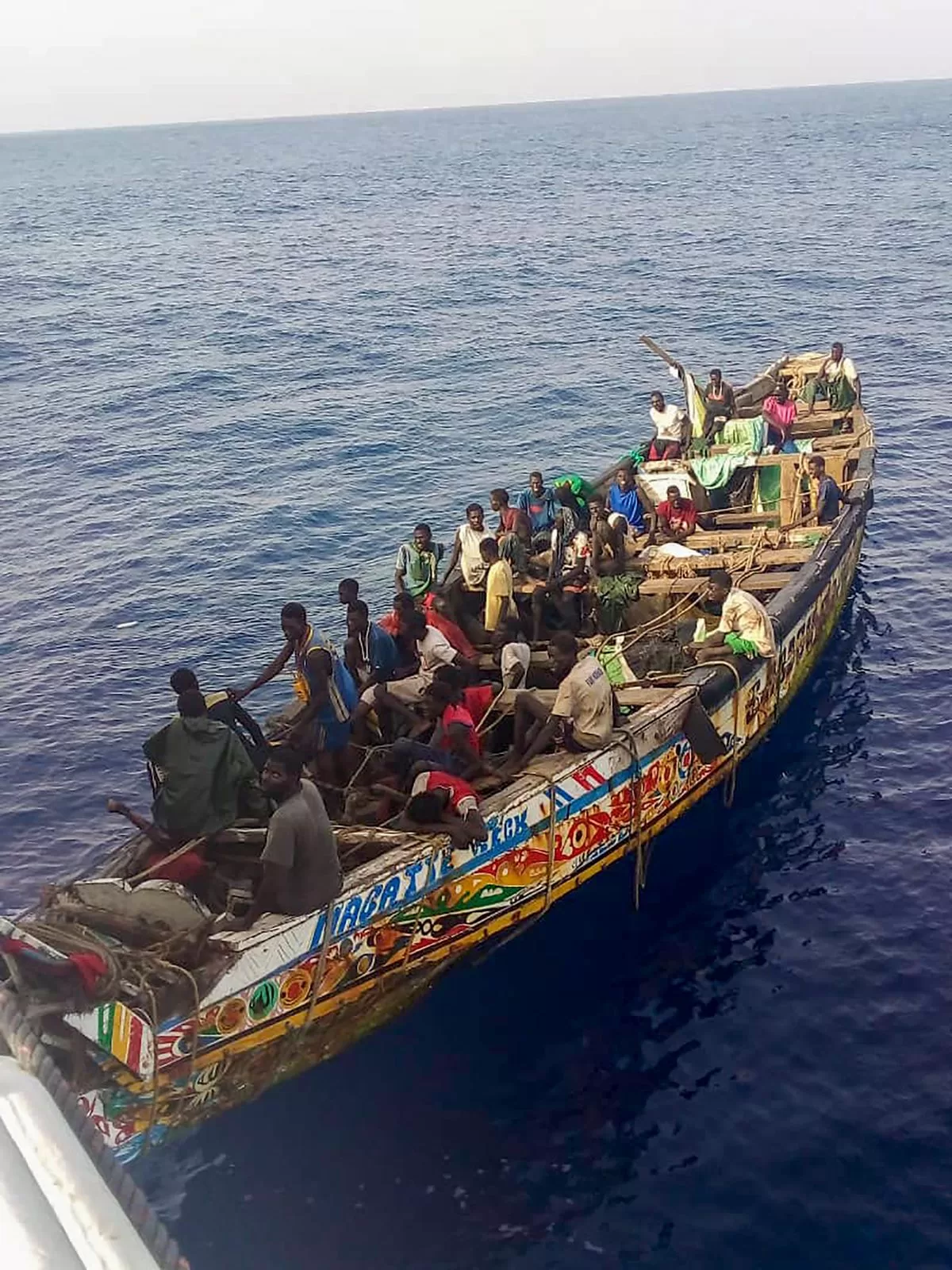The death toll in the canoe found adrift this week in Atlantic waters amounts to 92 because the occupants of the boat were not 101, as initially reported, but 130. This figure has been confirmed by the Spanish NGO Caminando Fronteras, which already on July 20 warned of the existence of this boat, full of people and lost somewhere in the ocean.
“Our organization received the alert on July 20, when several relatives began to call us, concerned about a boat that had left 10 days earlier and in which 130 people were traveling,” says Helena Maleno, founder of Caminando Fronteras. This observatory has spent more than two decades carrying out tasks of locating and monitoring those migrants who try to cross the Euro-African western border to alert the authorities and avoid deaths. That same day, Maleno published the following message on X (formerly Twitter): “URGENT. A Senegalese canoe with more than 120 people on board has disappeared. They left 14 days ago and the desperate families ask for a reinforcement of search means ”.
The cayuco about which the NGO was alerted has turned out to be the same one that a Basque fishing boat found on August 15, the zillarri, 150 miles, about 240 kilometers, north of the island of Sal, in Cape Verde. Inside, the sailors found seven bodies and 38 people still alive, including four minors between the ages of 12 and 16. The rest of the missing were thrown into the sea as they perished, to prevent their bodies from beginning to decompose inside the ship.
Once the notifications from the relatives were received, the NGO compiled all the available information and sent it to Morocco, Spain, Mauritania and Senegal, which are the countries that monitor the Atlantic migratory route, used above all by migrants who want to reach the islands. Canary Islands. “All this time we have been monitoring what the authorities were doing, but the searches have been insufficient,” says Maleno. “Few searches, little collaboration between them, information that is difficult to manage between the countries that must coordinate to defend the right to life in that area…”, he laments.
The death of ninety-two people in a canoe that left Senegal on July 10 bound for the Canary Islands was terrible. The thirty-eight survivors were rescued by the Cape Verdean authorities.?? pic.twitter.com/gbzSI9aoXR
— Helena Maleno Garzón (@HelenaMaleno) August 16, 2023
The sailors were mostly of Senegalese nationality – one or two people came from Guinea-Bissau – and had left from Fas Boye, a town located in the Thiès region, 130 kilometers north of Dakar, the capital of Senegal. They were heading to the Canary Islands, according to relatives, but at some point during the journey they deviated and never reached their destination. “They ran out of gasoline, adrift, and there was not enough water or food for the 130 people. Little by little they were dying during that time until the fishing boat saw them”, explains Maleno.
Join EL PAÍS to follow all the news and read without limits.
subscribe
The cayuco was dragged by sea currents for at least 37 days, until on August 15, the sailors of the zillarri They found them and transferred them to the port of Palmeira, on the island of Sal in Cape Verde, where they received medical assistance. Some are still admitted to the hospital and all of them will be repatriated to Senegal, as confirmed on Thursday by the Cape Verdean Ministry of Foreign Affairs.
Once on dry land, the survivors called and sent messages to their families in Fas Boye. “This case has a brutal impact, because the people who were sailing on that boat were from the same area; They were friends, neighbors… The impact on the community is being terrible”, Maleno stated. There is “sadness, dismay and despair,” Fas Boye councilor Moda Samb told AFP.
The characteristics of this migratory route, one of the most dangerous in the world, mean that the canoes can easily get lost or drift if there is an engine failure, explains the founder of the NGO. “For this reason, we have requested greater search means that could have saved more lives, but without a response from the authorities.”
The risky journey is the same that thousands of people make each year, and more so in 2023, the year in which there has been a rise in clandestine departures from Senegal, mainly due to good weather conditions, but also due to the crisis policy that the country is experiencing and that in recent months has led to violent riots, with hundreds of arrests.
Between January 1 and August 17, 2023, at least 387 have died or gone missing, including this latest shipwreck. In the same period of the previous year, there were 327, and in all of 2022, 559 deaths or disappearances were registered, including 22 children, according to data collected by the International Organization for Migration. For Caminando Fronteras, this figure could be up to three times higher.
Follow all the international information on Facebook and Twitteror in our weekly newsletter.
Subscribe to continue reading
Read without limits




